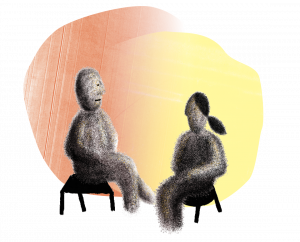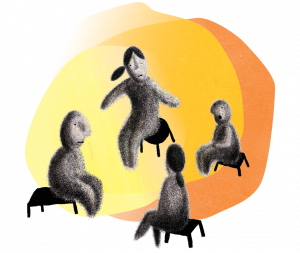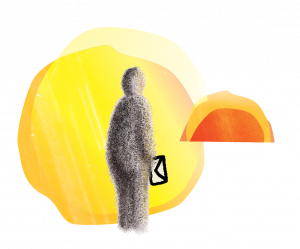Restorative justice processes explained
Open Circle’s restorative justice processes are flexible, allowing the needs of participants to shape the process. While some aspects of the process are necessary (voluntary participation, respect, safety) flexibility can be applied to the following factors:
- Who is involved (just the person harmed, person responsible and the convenor, or a broader range of people impacted by the harm)
- How the participants communicate (face-to-face, online, or via exchange of letters)
- How long the process takes (often between 2-6 months)
- What the participants agree to as outcomes
- The level of support required for the participants
Keeping in mind that the process is flexible and can look quite different for each matter, outlined below is an example of how an Open Circle restorative justice process evolves.
Stage 1 – Intake conversation

- Firstly, you will have a conversation over the phone with an Open Circle staff member. This conversation will cover who we are, what we do and how we work – we want to make sure that our program fits with what you are expecting. We will ask you several questions such as: Why do you want to participate in a restorative justice process? What are your hopes and concerns for this process? Who would you like to be involved in this process?
- Our processes are voluntary, so we cannot guarantee that the person you would like to meet with will want to participate.
- We only proceed to the next stage if we are confident that Open Circle can address your needs in ways that are safe and beneficial.
Stage 2 – Preparation

- Preparation is the longest stage of the restorative justice process, commonly taking between two to six months, depending on everyone’s needs.
- Open Circle conveners will meet with you to prepare you for coming together with the other person/people. Preparation conversations will cover your hopes, concerns, needs and expectations for participating in the restorative justice process. We work with you to tailor a process that has the potential to deliver as many of your needs as possible.
- Conveners will meet with you as many times as is necessary for you to feel ready, prepared and safe to come together with the other person/people.
- Conveners make sure you feel clear about what will happen on the day of the meeting, co-creating a loose agenda, including the topics that will be explored. Conveners also prepare you for the practical details such as how will everyone greet one another? Who will speak first? How will you communicate if you need a break?
- Throughout the process we are continually assessing everyone’s risk and suitability. Sometimes at this stage, together with each individual, we decide that a face to face meeting isn’t the best way to proceed and we may work towards an alternative path forward. Sometimes at this stage, one of the parties decides they are no longer able to proceed with the restorative justice process.
- Once everyone states that they feel ready and clear about how the conference will run, we will move to stage 3, where we bring everyone together.
Stage 3 – Conference

- Open Circle conveners bring everyone impacted together to discuss what happened, how it impacted them, and what is important to people moving forward.
- Conferences usually take around 2-3 hours but the time is flexible according to everyone’s need and tolerance.
- Conveners will assist everyone involved to say what is important to them in a safe and respectful way.
Stage 4 – Post-conference

- Following the conference, an Open Circle convener will arrange a meeting with you to give you an opportunity to debrief and share your experiences.
